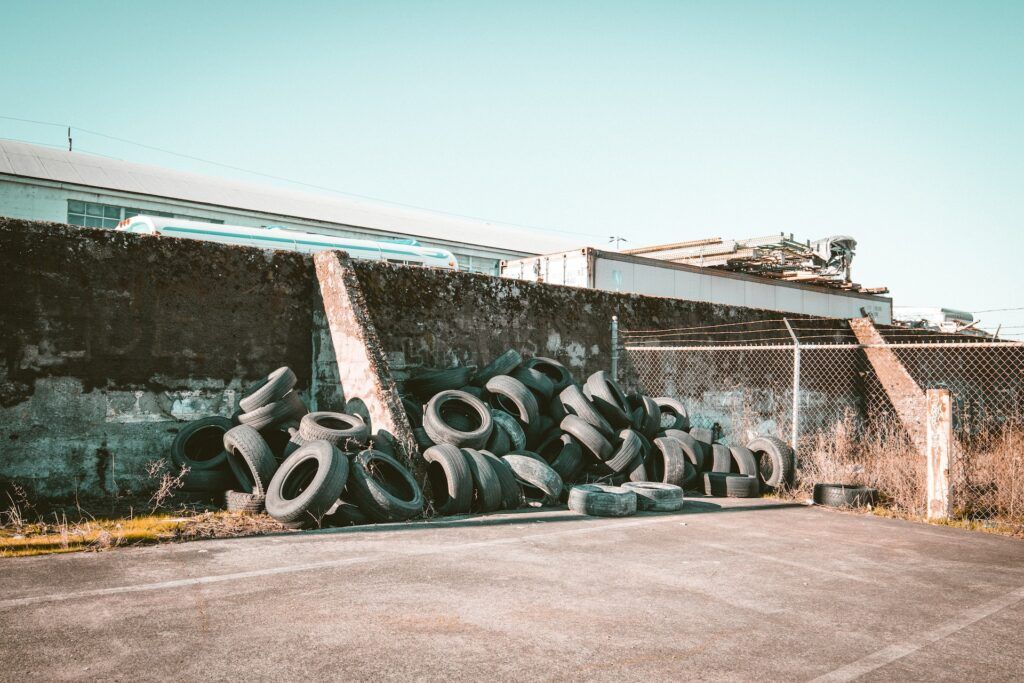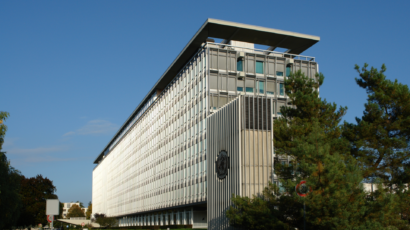Scrap solution: Burning tires to mine bitcoin
By Jessica McKenzie | August 23, 2023
 Photo by Zachary Keimig on Unsplash
Photo by Zachary Keimig on Unsplash
A bitcoin mine located at a waste coal power plant in Pennsylvania wants to add a new fuel to its power generation mix: scrap tires.
Stronghold Digital Mining describes itself as an “environmentally beneficial” bitcoin miner. But during a virtual press conference on Monday, Russell Zerbo, an advocate at Clean Air Council, said the facility, Panther Creek, had received at least seven air quality violations since it was acquired by the cryptocurrency mining company in 2021.
The press conference brought together representatives of local and national environmental organizations, including Earthjustice and PennFuture, along with residents of Carbon County—where the plant is located—to ask the Pennsylvania Department of Environmental Protection to reject Stronghold’s permit application for this new fuel source.
Tires are a significant waste problem: The United States generates some 300 million scrap tires every year. According to the EPA, burning scrap tires is better than dumping them in a landfill, but not as beneficial as finding ways to reuse or recycle them. In a landfill, the flammable materials that tires are made of can pose a risk of uncontrolled tire fires. Abandoned tires can also become breeding grounds for disease vectors like mosquitoes.
Another problem is that the burning of tires releases a number of air pollutants. In addition to the usual pollutants and greenhouse gases associated with burning fossil fuels—such as carbon oxides, sulfur oxides, and nitrogen oxides—burning tires can also release polychlorinated biphenyls (PCBs) and polynuclear aromatic hydrocarbons (PAHs), along with other hazardous air pollutants and metals. Many PAHs are carcinogenic, but as the environmental organizations protesting Stronghold’s application point out, Panther Creek does not monitor releases of these pollutants.
Stronghold is hardly the first company to think of burning tires to mine cryptocurrencies. In 2017, Vice News reported that the company Standard American Mining had partnered with PRTI, a tire “thermal demanufacturing” company based in North Carolina. Both the websites for Standard American Mining and the company that apparently acquired them are now nonoperational, but PRTI was still burning tires to mine cryptocurrency as recently as 2021.
Mel Magazine reported on another company in Texas, XcelPlus International Inc., which claimed it could convert all kinds of waste and garbage, including tires, and convert it to fuel to mine bitcoin. That company’s website is now also defunct, but an archived snapshot shows the company boasted that this would net them carbon credits, tax credits, and waste disposal fees.
As I previously reported for the Bulletin of the Atomic Scientists, the history of bitcoin mining has been a race to find the cheapest energy available. Increasingly, miners have resorted to acquiring the means of power production themselves. Some have purchased retired power plants, others have installed generators at gas wells, mining bitcoin at the source. Tire-derived fuels are cheaper than other fossil fuels, so the trend of bitcoin miners chasing cheap energy continues.
Even though recycling scrap tires is considered superior, this can also come with risks. Artificial turf made in part from recycled tires can release acutely toxic levels of metals like copper and zinc into stormwater, which if it flows into streams or other bodies of water, can be toxic to aquatic life. Home gardeners have even been warned to not use tires as cheap raised beds because they contain aluminum, cadmium, chromium, copper, iron, magnesium, manganese, selenium, and sulfur, which can be released into the water and soil as the tires break down.
Even if there are few good options for disposing of scrap tires, environmental advocates have asked Pennsylvania’s Department of Environmental Protection to consider the use to which the energy produced at Panther Creek is being put. Electricity generation powers homes and businesses, and until the transition to renewable energy is complete, burning fossil fuels could arguably be necessary, to a certain degree. But using it to mine cryptocurrency is of little to no use for the residents of Carbon County.
“Cryptocurrency is a completely useless private product that provides absolutely no benefit to residents currently impacted by Panther Creek’s incineration of waste coal,” Zerbo said. He argued that as such, the plant should be permitted as a solid waste incinerator, which would be subject to more air pollution monitoring requirements than a power plant.
Linda Christman, a resident of Carbon County and president of the local environmental group Save Carbon County, pointed out that Carbon County is among the poorest counties in the state of Pennsylvania, making this an environmental justice issue. She said that 36 percent of the population within a mile of Panther Creek are living under the federal poverty level. “That may lead companies like Panther Creek to think that they can get away with anything,” she said. “We’re here to say, ‘no.’”
Together, we make the world safer.
The Bulletin elevates expert voices above the noise. But as an independent nonprofit organization, our operations depend on the support of readers like you. Help us continue to deliver quality journalism that holds leaders accountable. Your support of our work at any level is important. In return, we promise our coverage will be understandable, influential, vigilant, solution-oriented, and fair-minded. Together we can make a difference.
Keywords: Bitcoin, air pollution, air quality, cryptocurrency, environmental justice, fossil fuels, waste
Topics: Climate Change
















If tires are to be burned for electricity, why not just feed the power into the grid?
A former Sierra Club attorney I knew once defended a proposed tire burning plant. WHEN PROPERLY REGULATED They are certainly better than coal plants
Well, ain’t this a hot mess! We are talking about a Bitcoin mine trying to burn scrap tires for power. Sure, they call it “environmentally beneficial,” but those air quality violations don’t lie. Burning tires could be a better idea, folks. We’re talking about many air pollutants, not to mention the risks of tire fires and toxic runoff. And what’s the deal with using this energy to mine cryptocurrency? It’s not helping the folks around Panther Creek, that’s for sure. They should consider some cleaner and more useful ways to power up. Recycling these tires seems smarter, especially in poor… Read more »